CRN Exclusive: Hewlett Packard Enterprise CEO Meg Whitman On Possible Pivotal IPO, Dell-EMC Selling Assets, And HPE Partner Opportunity
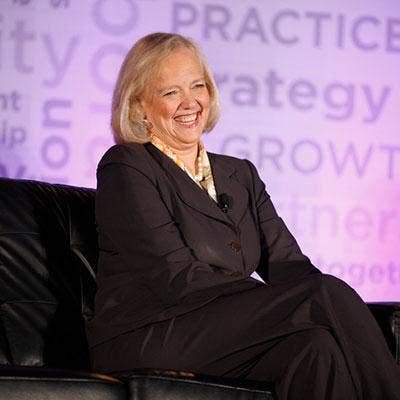
A New Era
With Hewlett Packard Enterprise officially launching on the NYSE Monday as HPE and HP Inc. now independent as a separate publicly traded stock under the symbol HPQ, Hewlett Packard Enterprise CEO and HP Inc. Chairman Meg Whitman spoke with CRN about the launch of the two new independent Fortune 50 companies, the possibility of an EMC Pivotal IPO, challenges facing Dell's planned $67 billion acquisition of EMC, and untapped HPE partner opportunities.
Whitman's conversation with CRN came after the HPE CEO rang the opening bell at the NYSE alongside the top executives from two of its biggest partners: $46.5 billion Ingram Micro, the largest global distributor of HPE and HP Inc.'s products, and $12 billion CDW, one of the largest HPE and HP Inc. solution providers. "It feels great," said Whitman, who took over as CEO of HP four years ago with the company facing severe financial pressures and intense criticism from partners and customers. "It has been a long journey," she said.
"We have strengthened ourselves to where this separation is possible," said Whitman. "The objective is to have these two companies go faster and further as two independent companies."
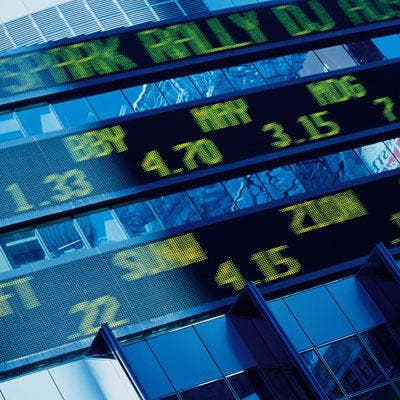
There was a report that EMC may float Pivotal as an IPO. What do you think of that move, and do you think we'll see more actions like this from Dell-EMC?
I think they have said that they are going to sell assets. So the question is, which assets? How are they going to do it? How is this going to work? I think there is going to be some change to this [Dell EMC] portfolio because I do think they are going to want to raise cash.
As for Pivotal, I think the developer's platform in Cloud Foundry is important. Greenplum, which is in Pivotal, has fallen away quite dramatically. I think Greenplum is not a successful product.
So it is really just Cloud Foundry training for DevOps that they do with customers. I am not quite sure what Pivotal will trade for. It will be interesting to see.
But I think almost anything is actually helpful in terms of reducing the debt load. So I think you are going to see product rationalization. I think you are going to see sell-off of certain assets, which obviously creates challenges for people trying to make decisions about what they want to sell.
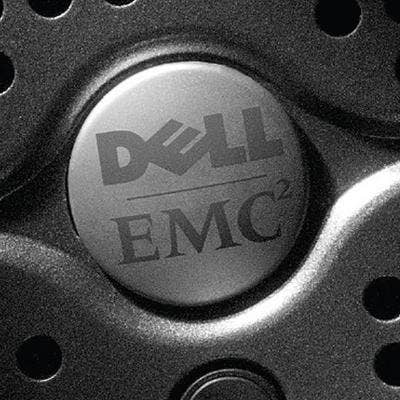
What percentage of these big deals like Dell-EMC actually work out?
The academics would tell you not many work out. But it is up to the leadership team to really go after it and execute. We obviously made a very different decision that being smaller and more nimble, de-leveraging our balance sheet as opposed to leveraging the balance sheet, was the right thing to do.
We'll see over time. The next couple of years there is going to be a lot of instability over there [at Dell-EMC]. Our job is to be the stable partner with great products that partners can depend on.
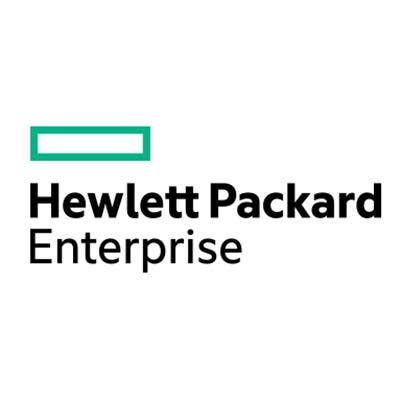
HPE has $5.5 billion in cash. What is the Hewlett Packard Enterprise acquisition strategy?
Among the best acquisitions HPE has done in history is 3Com, which is obviously our networking business today; 3Par; and Aruba. So look for us to do more acquisitions like those. What do they have in common? They are complementary technologies that leverage our go-to-market, leverage our partner network.
We have such a global footprint that most other companies are not as developed as we are internationally. That is what we are doing with Aruba [expanding internationally]. And then while we paid a fair price for those companies, we didn't overpay. We didn't pay 70 or 80 or 90 times multiples.

What's the Hewlett Packard Enterprise investment technology strategy?
We will invest in new technologies. You saw we invested in Chef [an open-source software configuration management tool]. We invested in Avalon [open-source software for curating video and audio], security and DevOps plays. We'll continue to do that.
What we want to do is sell those new offerings that we have an investment in through our partner network and our direct selling motion. We want to make sure that we can curate, if you will, Silicon Valley for our customers and our customers' customers. So you'll see more investment and curation into those four transformation areas [transforming to hybrid infrastructure, empowering a data-driven organization, protecting digital enterprise and enabling workplace productivity].
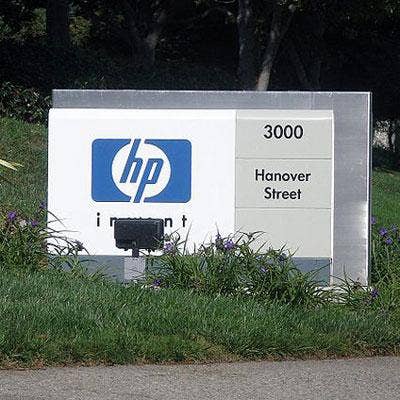
Talk about how you feel that now that Hewlett Packard Enterprise and HP Inc. are on their own?
It feels fantastic to have these two companies out on their own pursuing their different markets as two more focused, more nimble companies. It is just thrilling. It is great, great fun.
We had [CEO] Tom Richards from CDW and [CEO] Alain Monie from Ingram Micro on the stage this morning. We had partners very well represented.
It feels great. It has been a long journey. Scroll back all the way to September 2011 [when I took over as CEO]. [Former CEO] Leo [Apotheker] had announced that maybe we were spinning off the PC business. That was not well received by partners and customers. Everyone was pretty worried about the future of the company and slowly but surely we have built back the innovation engine of HP. We have stabilized the company. We have got leadership in place. We have rebuilt trust with partners and customers.
So we have strengthened ourselves to where this separation is possible. The objective is to have these two companies go faster and further as two independent companies, obviously remaining very close friends and important partners to one another. Now we'll get to see what's next for these two companies. We are pretty excited about it.
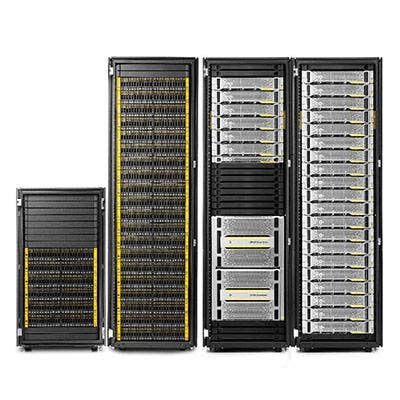
Where are you recruiting more partners as you look at Hewlett Packard Enterprise?
On the infrastructure side, [there's] incredible opportunity still in 3Par. The 3Par all-flash array is on fire. We are bigger than Pure and growing faster. A real opportunity on 3Par all-flash array.
Obviously, networking and Aruba. We are actively recruiting partners for Aruba. And, of course, actively recruiting partners in the security software space, the big data space and also don't forget our IT Operation Management suite. The first step for customers of all sizes is they have got to get more out of their legacy IT and many people have not fully automated and orchestrated and monitored. So I think partners have a great opportunity to go into their customers and say, 'Have you fully automated your data center? Have you fully orchestrated? Are you monitoring in a modern way?' So we are actively recruiting for security, big data and IT operations management.

Talk about the opportunity around your Cloud Services Automation product.
That is a business that is quite large and growing very rapidly. It's a big deal. It is also a control point. A partner can put that into one of their customers and then they have got, actually, a really nice software control point around what cloud that customer is going to put in and how they orchestrate and monitor those clouds in a multicloud environment.
One of the things that is different from three to four years ago is most customers are putting in multicloud environments. They might put in the HPE private cloud, the HPE VPC [Virtual Private Cloud], maybe MPC [Managed Private Cloud] from somebody else, maybe they will have a little AWS or Azure. They have to have software that orchestrates and monitors all those different clouds. And CSA is great for HP, but it is also cloud.